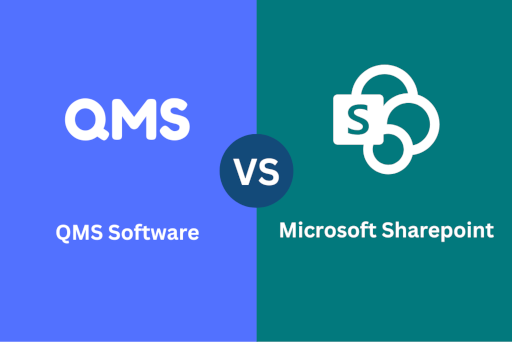What Makes a Quality Management System the Best? Features and Real-Life Implementations

A Quality Management System (QMS) is the backbone of any company striving for excellence, providing a structured framework that ensures high-quality standards and consistent processes, ultimately driving business success and customer satisfaction. But what makes a QMS truly exceptional? In this blog post, we will explore the essential features of an optimal QMS and highlight some real-life examples, including Trackmedium QMS, to illustrate these principles in action.
Essential Features of an Optimal Quality Management System
- Customer Focus: The primary objective of any QMS should be to meet and exceed customer expectations. This involves understanding customer needs, gathering feedback, and continuously improving products or services based on this feedback.
- Leadership Commitment: Effective leadership is crucial for the successful implementation and maintenance of a QMS. Leaders must be committed to quality, provide clear direction, and foster a culture that prioritizes quality at all levels of the company.
- Process Approach: An optimal QMS is built on well-defined processes that ensure consistency and efficiency. By mapping out processes, identifying key performance indicators, and monitoring them, companies can ensure that their operations run smoothly and produce high-quality outcomes.
- Continuous Improvement: A hallmark of an exceptional QMS is its emphasis on continuous improvement. This involves regularly reviewing and analyzing processes, identifying areas for improvement, and implementing changes to enhance quality and efficiency.
- Evidence-Based Decision Making: Data-driven decision-making is essential for a robust QMS. By collecting and analyzing data on various aspects of operations, companies can make informed decisions that lead to better quality outcomes.
- Employee Engagement: Engaging employees at all levels is crucial for the success of a QMS. This includes providing training, encouraging participation in quality initiatives, and recognizing and rewarding contributions to quality improvement.
- Risk Management: An effective QMS incorporates risk management principles to identify, assess, and mitigate potential risks that could impact quality. This proactive approach helps prevent issues before they arise and ensures consistent quality.
Real-Life Implementations of Quality Management Systems
Various industries rely on robust Quality Management Systems (QMS) to maintain high standards and streamline their processes. Here are some notable examples of QMS implementations that have proven effective in real-world applications.
Trackmedium QMS
Trackmedium QMS is an excellent example of a comprehensive quality management system. It offers a cloud-based platform that helps companies manage quality processes efficiently. Key features of Trackmedium QMS include:
– Document Control: Trackmedium provides robust document control features, ensuring that all quality-related documents are up-to-date, easily accessible, and properly managed. This helps companies maintain compliance and consistency in their operations.
-Audit Management: The platform offers powerful audit management tools that streamline the audit process, from planning and scheduling to execution and reporting. This ensures that companies can conduct thorough audits and identify areas for improvement.
–Non-Conformance and CAPA Management: Trackmedium helps companies manage non-conformances and corrective and preventive actions (CAPA) effectively. By tracking and addressing non-conformances promptly, companies can prevent recurring issues and enhance overall quality.
–Training Management: Ensuring that employees are adequately trained is crucial for maintaining high-quality standards. Trackmedium QMS includes training management features that help companies schedule, track, and document employee training activities.
Other QMS Examples
• MasterControl QMS™
MasterControl QMS is a widely used platform known for its compliance management capabilities. It integrates quality processes into a single platform, ensuring that compliance is maintained across all operations. Key features include:
–Document Management: MasterControl offers a document management system that ensures all documents are compliant, current, and easily accessible.
– Training Management: The platform includes tools for managing employee training, ensuring that all personnel are properly trained and qualified.
–Supplier Management: MasterControl helps manage supplier quality, ensuring that materials and components meet stringent quality standards.
• ETQ Reliance QMS™
ETQ Reliance is a configurable QMS platform that supports a wide range of quality processes. Key features include:
– Corrective and Preventive Actions (CAPA): ETQ Reliance offers CAPA management tools that help companies identify and address quality issues effectively.
– Audit Management: The platform includes audit management capabilities, ensuring that audits are conducted efficiently and effectively.
– Risk Management: ETQ Reliance incorporates risk management features, helping companies proactively identify and mitigate risks.
• Arena QMS™
Arena QMS is a cloud-based solution designed for product-centric companies. It integrates quality management with product lifecycle management (PLM) to ensure that quality is maintained throughout the product lifecycle. Key features include:
–Product and Quality Management: Arena QMS integrates product data with quality processes, ensuring that all aspects of product development and manufacturing are aligned with quality standards.
– Collaboration Tools: The platform includes collaboration tools that facilitate communication and coordination among teams, enhancing overall efficiency and quality.
–Compliance Management: Arena QMS helps companies maintain compliance with industry standards and regulations, ensuring that all products meet the required quality standards.
Conclusion
A top-notch Quality Management System is essential for any company aiming to achieve excellence. By focusing on customer satisfaction, leadership commitment, process efficiency, continuous improvement, data-driven decision-making, employee engagement, and risk management, companies can build a robust QMS that drives success. Real-life examples like Trackmedium QMS, and other solutions demonstrate the tangible benefits of implementing an effective QMS. Embracing these principles will help companies not only meet but exceed their quality goals, ensuring long-term success and customer satisfaction.




